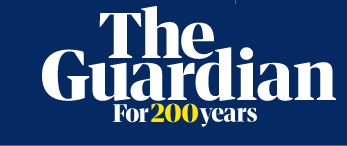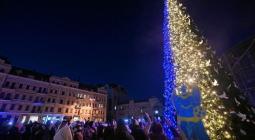Putin’s lethally negligent failure can’t be covered up. The Moscow attack leaves him weaker than ever
The mask of invincibility is slipping ever further, and eventually that will matter. This debacle won’t be forgiven or forgotten
Each time Vladimir Putin messes up, the same question is asked: will it make any difference? Last week’s terrorist attack on the Crocus City concert hall near Moscow, which killed 137 people, is one of the bigger crises Putin has faced in his 25-year rule. There is no doubt that he, as Russia’s head of state and overall chief of its security forces, bears ultimate responsibility for what was by any measure a catastrophic failure. In any normal political system, his resignation would be expected.
The fact this is more or less unimaginable is not necessarily a sign of Putin’s strength. His dictatorship has eviscerated checks and balances within Russian society, eliminating means of independent scrutiny. Any call for him to take personal responsibility would barely be heard, let alone acted on. Yet the Russian people, while chronically misled and serially misinformed, are not stupid.
With blood on the streets and a nation in mourning, there’s no hiding that the Putin superman myth just took a serious, bubble-bursting beating.
The Kremlin is estimated to have spent more than £1bn on “information management”, meaning lies and propaganda, to ensure Putin’s recent presidential election “victory”. In addition, there was a reported 20-fold increase in state spending on internet and media. All this had a single aim: to portray Putin as an invincible, indispensable modern-day tsar who bravely protects Mother Russia from her enemies.
Yet on Friday, four gunmen comprehensively demolished that myth in an anarchic frenzy of merciless violence. The attackers were unopposed, the victims had no warning, and all of Putin’s huge security apparatus – all this usurper king’s horses and men – were unable to stop the butchering of defenceless citizens.
Even in a society as tied down as Russia’s, this lethally negligent failure will not be forgotten or forgiven.
That’s on Putin. And it points to another fundamental weakness in his personal and political position: he is so out of touch, so isolated from day-to-day Russian realities, that he believes his own mendacious narratives. Despite explicit videos published online by Islamic State, which has admitted that it undertook the attack, Putin persists in blaming Ukrainian “Nazis”. This is beyond cynical. It’s borderline psychotic.
There is not a jot of evidence to support this deranged calumny, fiercely denied in Kyiv. Yet it’s no surprise. Unsubstantiated conspiracy theories are Putin’s stock in trade. The expectation is that the Kremlin, not satisfied with the recent murder of leading regime critic Alexei Navalny, will exploit the attack to further suppress domestic dissent, expand political controls, escalate the Ukraine war, even order a mass mobilisation.
If Putin is incapable of telling, or at least of accepting, the difference between reality and make-believe, it’s because he himself squats atop an edifice of lies. His power and his presidency are based on systemic falsehoods, fed daily to a captive nation on an epic scale. The basic contract, as it is sometimes called, between Putin and the people is that he delivers security and they deliver support. Yet this is the biggest lie of all.
Putin does not give a damn for the security and the wellbeing of ordinary Russians. At Crocus City, the big lie was cruelly exposed. As innocent people died or writhed in agony, Putin silently skulked, sulked and schemed for 19 hours about how best to dodge the blame and spin the fallout.
His selfish, cold-eyed insouciance has been witnessed again and again. Remember his callous attempts to ignore the Kursk submarine disaster in 2000 and the carnage he oversaw during the second siege of Grozny. Most recently it has led to the stupidest geostrategic blunder of modern times – his inept invasion of Ukraine – and resulting mass Russian casualties. He just doesn’t care.
With Putin, it’s always all about him, about his own insecurity, his need for absolute power, his delusions of revived Russian imperial grandeur. It’s never about other people, let alone “the people”.
The damage done to Russia by Putin’s war and the standoff with the west, in terms of lives, treasure and reputation, is incalculable. Yet it’s his abiding obsession. Everything he thinks and does appears related to it. Speaking after this month’s election, he vowed yet again to make it his main focus. Why? Because, deep in his shrivelled, desiccated heart, he knows it was a terrible mistake.
Most Russians, understandably, do not share Putin’s obsession. Instead they see, with growing clarity, the harm his war does to their families, their living standards, their shrinking freedoms, their personal safety. Regime-manipulated polls are misleading. Many Russians want it to end. Their silence is not consent, nor does it signify approval. It is rooted in fear.
Putin is vulnerable. He should have seen the terrorists’ attack coming. But arrogance and complacency blinded him. When the US generously shared an explicit heads-up about an imminent plot, he dismissed it as a disinformation ploy. When the security services should have been tracking Islamist militants, they were harassing opponents, journalists and gay people on his orders.
Putin has remade the Russian state in his own image: brutal, incompetent, ignorant, distrustful, delusional and isolated. It is fundamentally weak, as is he. Incrementally, as one calamity succeeds another, his grip slips, his authority weakens and fear of him dissipates. The Crocus City atrocity will accelerate this process. It does make a difference.
By helping shatter the altar screen of mythical omniscience behind which he cowers like a defrocked priest, it has forced Putin one more step down the road towards a final reckoning. It’s coming, do not doubt it. It’s coming.
Cover photo: Putin’s huge security apparatus was unable to stop the butchering of defenceless citizens.’ Photograph: Anadolu/Getty Images



